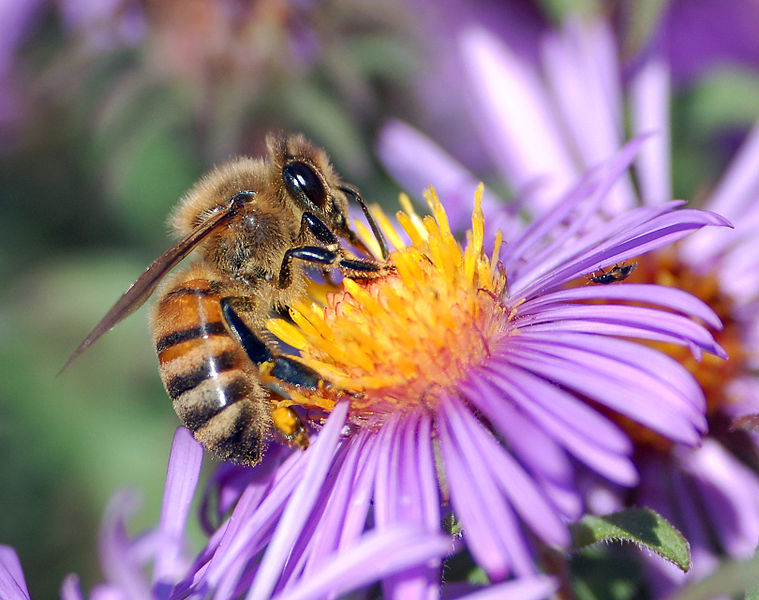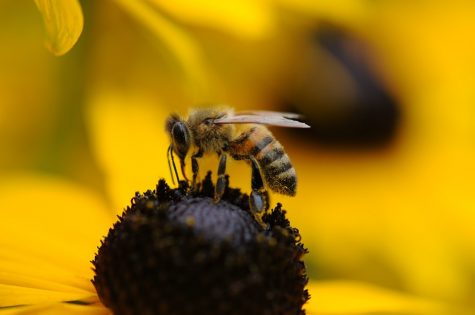Kill Them Now but it will Sting You Later
Most of the time, bees are thought of as the big buzzkill of summertime. Contrary to common belief, bees and other pollinators are actually responsible for over 80% of all pollination worldwide. “People are afraid of bees, but you can walk up to a beehive and sit right outside of it,” says Peter Dryke, an English teacher at Arvada West. “They won’t bother you at all; you disturb their hive then they get angry, if you start pulling it apart you’re gonna have bees coming after you.” Aggression of bees only occurs when their hive is provoked or if they themselves are, says Dylan Voeller and James Nieh, two biologists who study the aggression of bees. Let us see what all of the buzz is about.
Mr. Dryke is a English teacher for Arvada West, but he also keeps bees as a hobby. Some of his neighbors also keep bees, and he says that if you have the materials, money, space and are allowed to in your neighborhood, you should consider keeping bees as well. “I think they are interesting to watch is almost meditative to sit out there and watch them as they come in,” says Dryke. Honeybees also create honey, which means that bees are actually more beneficial than harmful. “In the fall, I will extract honey and I will get maybe 15 or 20 pounds of honey,” says Dryke.
A single colony of bees can pollinate over 300 million flowers a day, and also pollinate 70% out of the top 100% human crops. That is a whole lot of work, but bees are very significant to the economy, because they provide us with the basic necessity of life: food. All food, including beef, needs pollination. How can beef be pollinated? It is actually the cow’s food that is being pollinated. Bees are responsible for the majority of the things you eat such as: apples, plums, mangos, kiwis, onions, celery, etc. The ecosystem is reliant on bees for the sole purpose of their pollination. The selling of food to restaurants, grocery stores, and fast food chains are all a major part of our economy. Bees pollinate a lot of food as mentioned before which is why the economy is so reliant on bees.
A common misconception with bees is that they are highly aggressive when in reality, that is a myth. Bees only attack when threatened, or their hive is threatened. “It can be a painful experience. Before I had a beekeeping suit I had a temporary stand that I made for them to be on. One day the stand just collapsed. I am not a very good builder so I did not understand how much weight was on there as they collected honey. They had maybe 80 pounds of contents in the hive and it fell over. I didn’t have a beekeeping suit with a veil and a jacket on. They stung me 55 times,” Dryke says. “I had to put it back together or they would not exist.” Since most people do not want bees around their home, or just simply do not want those pesky dandelions, they spray Raid and/or RoundUp. What most people don’t know is that RoundUp can actually poison bees.
“One of the things that kills bees is neonicotinoids, which are found in RoundUp when you spray dandelions in your yard,”says Dryke.
After years of beekeeping, Dryke has come to the conclusion that bees are fairly passive. They are the top pollinators, produce pounds of honey, create the ecosystem and create a large portion of economy.




